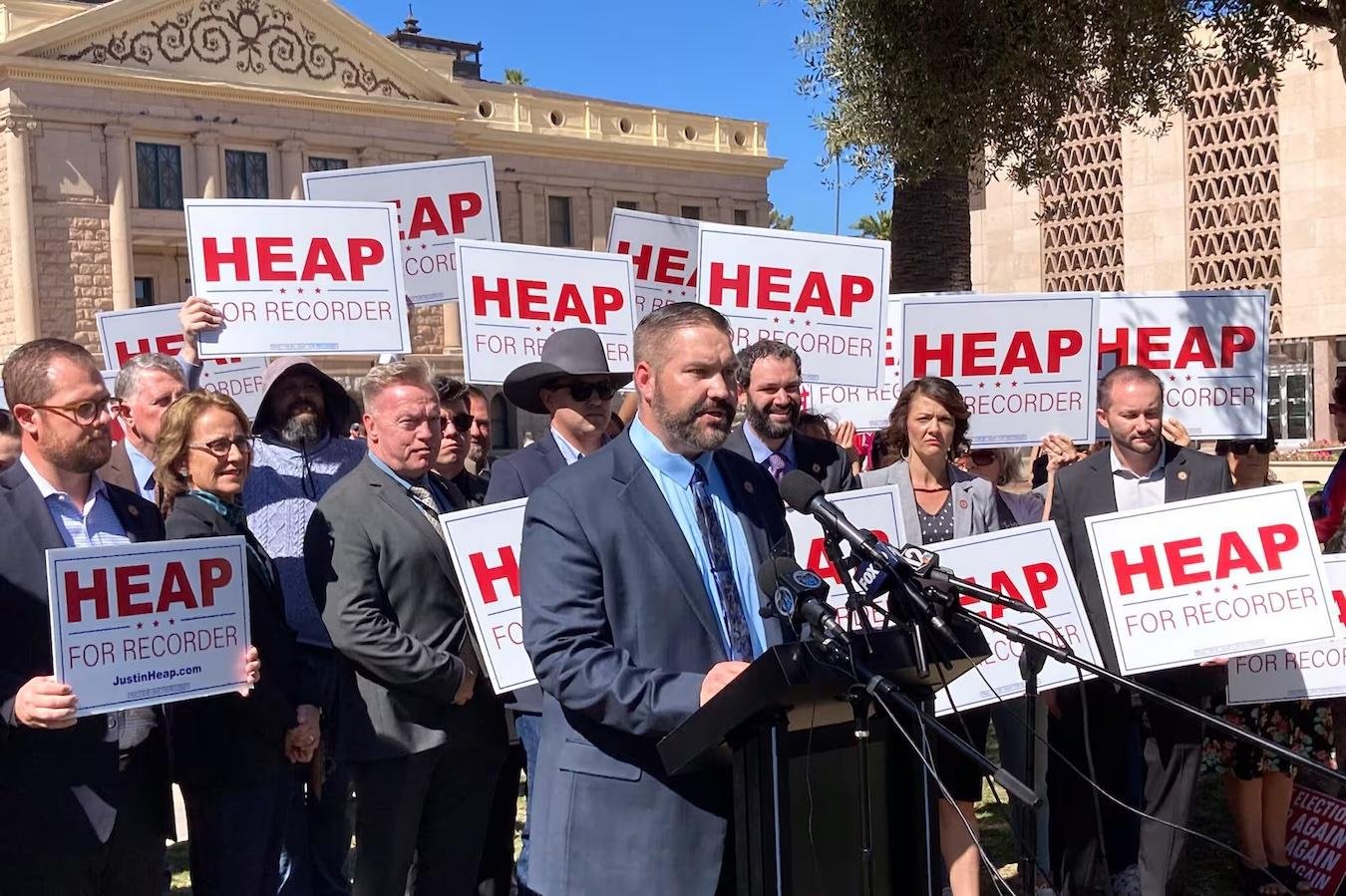arizona
With New Leadership, Maricopa County’s Elections Could Face Major Transformation

A shift in leadership is underway in Maricopa County, as a new group of Republican officials prepares to take charge of the county’s elections. This comes amid ongoing debates about the integrity of the electoral process, which have been fueled by unfounded allegations of widespread voter fraud.
Former county officials, who consistently defended the election process against internal party criticisms, are stepping down. The new leadership, including incoming recorder Justin Heap, appears poised for a different strategy focused on reform. Heap, a Republican state representative, notably defeated incumbent Recorder Stephen Richer in a heated primary that attracted national attention with his critical stance on the county’s election systems.
Heap has characterized the current election process as flawed, vowing to bring significant changes. However, he shares oversight of elections with the five-member board of supervisors. In recent statements, board members expressed a cautious approach towards implementing alterations, aiming to enhance the election system while building necessary trust among each other.
Mark Stewart, the new chairman, will take over from Jack Sellers. Meanwhile, Clint Hickman and Bill Gates, who both chose not to seek re-election, will be replaced by U.S. Rep. Debbie Lesko and former state Sen. Kate Brophy McGee. Their new term begins on January 1.
Communication and trust will be essential components moving forward. Historically, county officials collaborated to counter false claims and maintain voter confidence, particularly post-2020 election. Now, as new officials contemplate potential modifications, they will need to foster unity internally and externally to rebuild public trust.
Incoming supervisors are intent on mending the county’s relationship with state legislators, which deteriorated following the 2020 election, when lawmakers sought to audit the county’s ballots. A priority for Heap includes expediting election results, controlling voter registration, early voting, and the integrity of mail ballots. However, he will rely on the supervisors for overarching control over direct in-person voting processes.
Heap recently indicated in an interview that staffing, voter roll management, and mail ballot tracking will be areas for review. “The people have clearly spoken,” he stated. “They demand change to elections we haven’t had in quite a while.” While Heap’s focus on streamlining election results is clear, he will need joint cooperation from the board of supervisors, who have expressed similar intentions.
Both Lesko and Brophy McGee have emphasized the importance of understanding existing election practices to identify improvement opportunities. Notably, they intend to engage with state lawmakers on expediting election results, a goal shared by many in the new leadership.
State law delineates election responsibilities between the recorder and the supervisors, contributing to a complex governance structure. Historically, the board has taken back control from the recorder’s office to maintain accountability for any errors. Changes to collaboration agreements have already occurred; new terms were signed just prior to the upcoming elections allocating fewer responsibilities to the recorder.
Heap intends to push for a revised agreement addressing what he sees as shortcomings in current operational guidelines. He has stated the necessity for a more practical division of labor, although specifics remain to be articulated.
The vision Heap has for the elections incorporates introducing measures for enhanced ballot tracking throughout the process. His previous legislative efforts aimed at improving documentation during voting have laid a foundation for his intended reforms, although recent proposals faced pushback.
Despite Heap’s campaign rhetoric about improving the voter rolls, details on implementing such changes remain vague. Moreover, legal limitations circumscribe when and how voters can be removed. Observers and election attorneys are closely watching for any potential missteps from the incoming recorder as he begins his tenure.
Heap, who has voiced intentions for personnel changes, suggests a middle ground that balances change with stability, recognizing the need to have qualified individuals in crucial roles within the elections office.


















